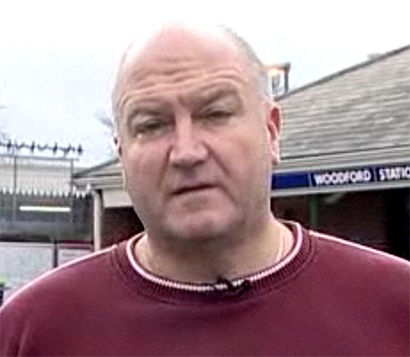THE RMT Executive is recommending that a ballot of signallers for strikes over a flexible rostering dispute should be held again, after the first ballot was thrown out by a High Court judge just before the Easter weekend.
In an eleventh hour decision, Mrs Justice Sharp ruled on Thursday afternoon that the ballot held by the RMT had been invalid, which meant that four days of walkouts by signallers were no longer legal.
The action would have involved two 4-hour strikes each day from Tuesday to Friday, reducing the railway to a twelve-hour day at best. Many commuter services would have been reduced or cancelled, despite arrangements for emergency cover at major signalling centres. Replacement buses could not have been guaranteed.
The dispute between the RMT and Network Rail had moved to the High Court after Network Rail had challenged the technical details of the ballot. It explained: ‘We have uncovered what is believed to be scores of inaccuracies and deficiencies with the signallers’ ballot leading the company to conclude in its papers to the RMT that it had “manifestly failed to comply with the requirements of the Trade Union and Labour Relations Act of 1992”.’
Network Rail said it welcomed the news that the court had accepted its submission. A QC representing Network Rail had told the judge that ‘unlawful’ strike action would cause ‘immense damage to the economy’.
The company’s operations director Robin Gisby added: “This is good news for the millions of passengers who rely on us every day, and for our freight users and for the country as a whole. A dispute with the unions remains however, and we have a responsibility to our people to continue talking to the unions to find a settlement that works for us all."
However RMT general secretary Bob Crow, who had described Network Rail’s move as an attack on the ‘internal democracy’ of the union, said the Executive would be recommending a reballot.
He also described the ruling as "an attack on the whole trade union movement”. He added: "Workers fighting for the principle of a safe railway have had the whole weight of the law thrown against them."
Network Rail has consistently denied that its changes to working practices, which include more 9-hour shifts for signallers rather than 12-hour ones, implied any reduction in safety. A second dispute involving maintenance staff was not affected by the court decision, and was due to begin on the Tuesday after Easter and run for the rest of the week. However, Network Rail said this action would not affect train services.
The news of the High Court ruling was greeted with relief by train operators, who had worked hard for several days to compile emergency timetables.
Meanwhile, a long-running dispute over train crews on the Airdrie--Bathgate line, which is due to reopen in December, is moving to the conciliation service ACAS. ScotRail wants to use ticket examiners rather than conductors, with drivers operating the doors, but the RMT claims safety would be put at risk. This is denied by ScotRail, which said that more than half its trains have drivers controlling the doors, and that on some lines this has been the position for the past 25 years. The company has also promised that conductors’ jobs are secure.
Three strikes have already been held in Scotland, involving roughly 500 RMT members. Further walkouts had been planned for the week starting 12 April before the new negotiations were agreed, and much will depend on the outcome of the fresh talks.
Trouble is also looming on London Underground, after Transport for London refused to abandon plans to reduce the number of ticket office staff, mainly at suburban stations. The RMT said it would be balloting for a strike after 800 jobs were seen to be at risk. TfL said no ticket office would close entirely and that all stations would remain staffed. It also pointed out that ‘only 1 in 20 Underground journeys now start with a visit to the ticket office’, because most passengers use Oyster smartcards. The RMT said it was not acceptable for staffing to be reduced to the point where some stations were being ‘babysat’ by one person.


